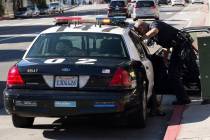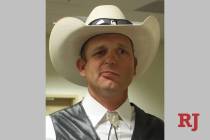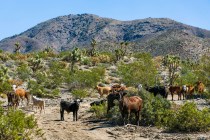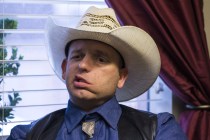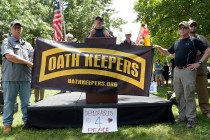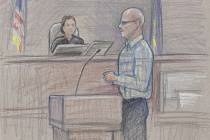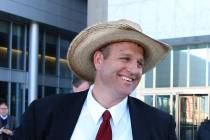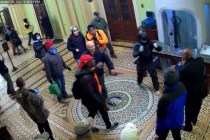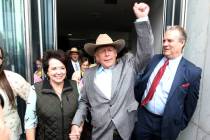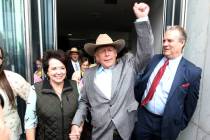Cattle rancher taking fight over land use to limit
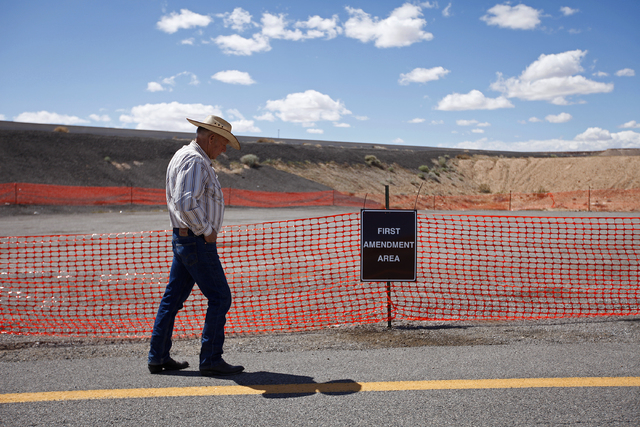
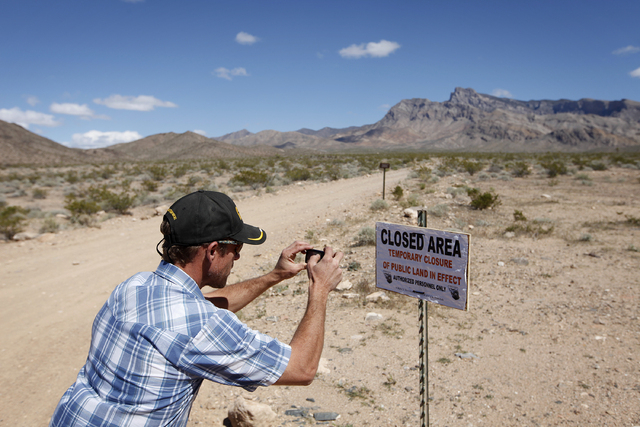
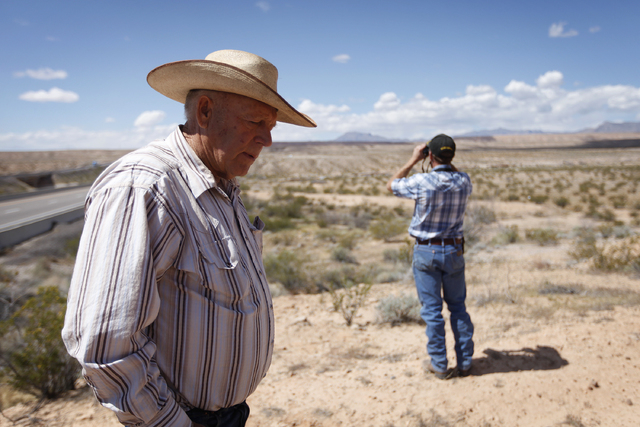
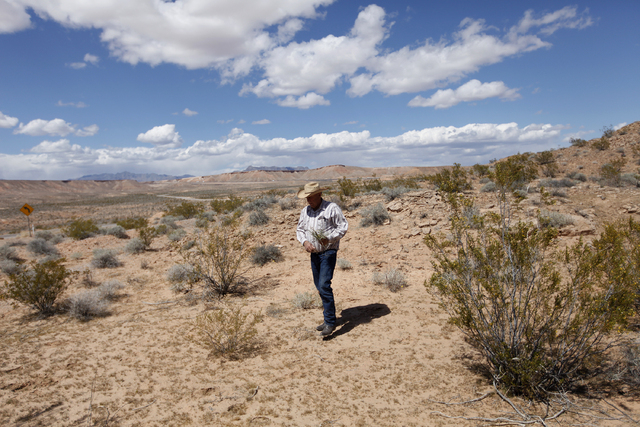
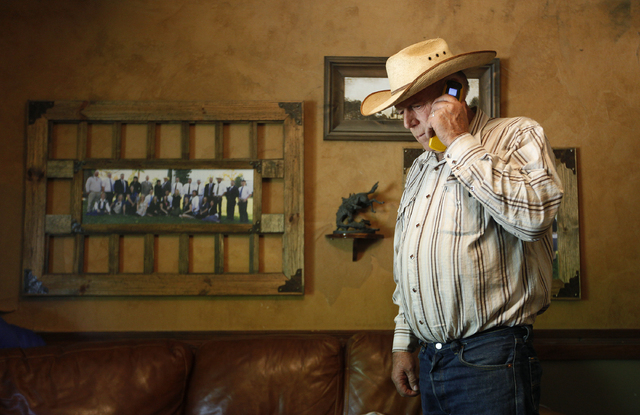
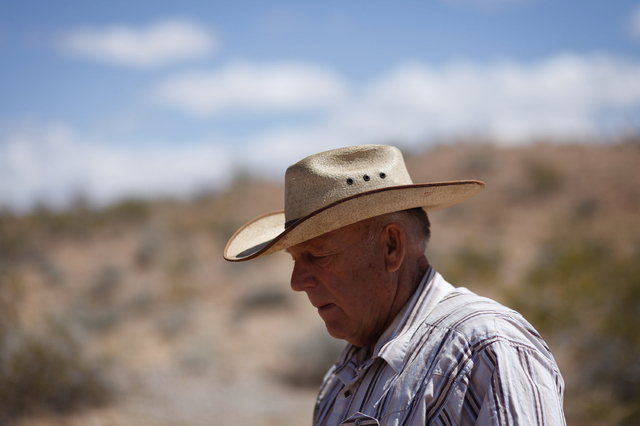
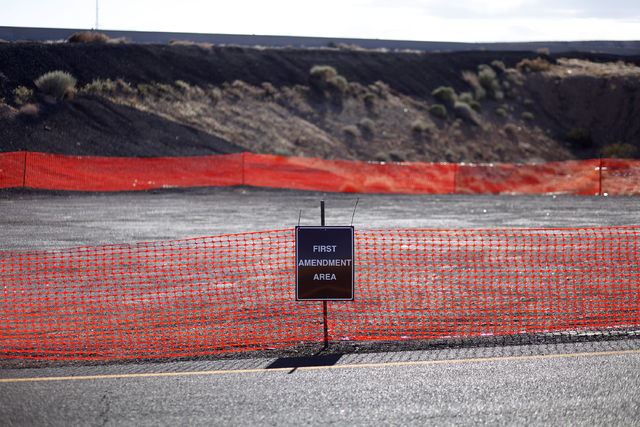
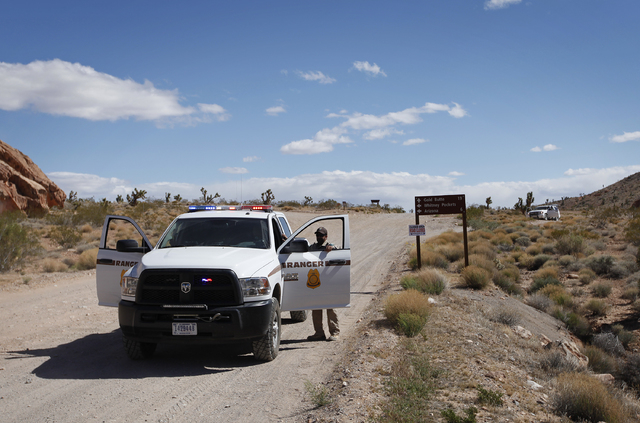
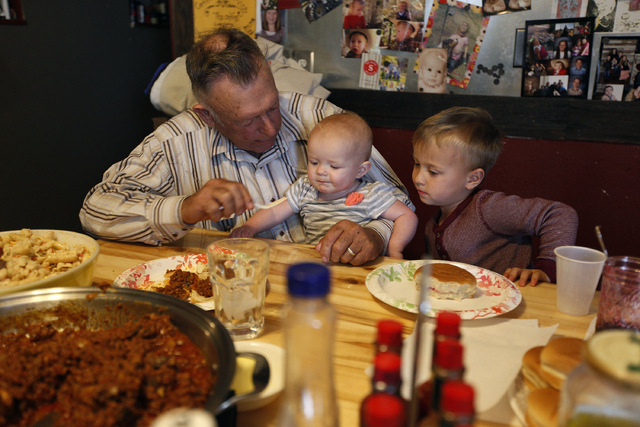
BUNKERVILLE — The tour starts with a ranch breakfast in the house Cliven Bundy’s father built in the Virgin Valley in the 1950s.
There are fresh eggs, potatoes, milk straight from the cow, and fry bread with homegrown pomegranate jelly. The main course is beef, of course.
“I have a great history here,” Bundy says Tuesday from his kitchen table, a wall of family photos at his back.
Outside the windows and beyond his property line, roads in the Gold Butte area have been closed as federal authorities make final preparations for the long, tense weeks ahead.
If Bundy hopes to stop a federal roundup of his cattle from public land 80 miles north of Las Vegas, he’s running out of time.
Within the past few weeks, the Bureau of Land Management announced plans to impound at least 500 of what it calls “trespass cattle” that Bundy has left to roam on a 90-mile swath of federal land for the past 20 years.
For the next month and a half, federal authorities will restrict access to almost 600,000 acres of public land in northeast Clark County — and completely close portions of it — to ensure the safety of the operation.
At the moment, Bundy’s efforts to stop the roundup involve setting up media interviews, rallying his supporters, making calls to state and local officials and taking calls from worried friends and relatives. His house is filled with the sound of ringing phones.
For the next few hours, he will leave the phones to his wife and grown children so he can show the Review-Journal around.
The first stop is in the nearby town of Bunkerville, where BLM has set up one of two “First Amendment areas,” dirt pens with orange plastic fencing to contain protesters. The second pen sits next to Interstate 15 at the Riverside exit, its professionally printed signs providing the ideal backdrop for all the interviews Bundy is ready to give about how the federal government is ignoring the Constitution.
His dispute with government dates back to 1993, when he stopped paying federal grazing fees because he said he didn’t like where the money went or how the range was being managed.
The BLM responded by canceling his grazing permit and ordering him to remove his cattle from federal land.
A few years later, the bureau officially closed the former Bunkerville allotment to livestock out of concern for the federally protected desert tortoise, but Bundy didn’t blink. The 67-year-old says he kept using the land and paying for his own “range improvements,” from cutting roads and putting up corrals to developing new water sources for his cattle.
What he has come to believe is that the federal government has no ownership rights to or management authority over public lands in Nevada. He talks a lot about “states’ rights” and “sovereignty,” words that fueled the so-called Sagebrush Rebellion and other fights for control of huge expanses of Nevada and the West.
The courts have ruled against him and his views repeatedly, but he is undeterred.
Bundy says he has received countless messages of support from as far away as South Dakota. He says he has people standing at the ready to stage protests at various locations as his cattle are collected, inspected and possibly moved out of state to be sold.
He also has plenty of family to back him up — 14 children and 52 grandchildren, with three more on the way.
His son, Mel, comes along on the tour.
He took time off from his job at a gold mine in northern Nye County to support his dad as the roundup approaches.
“Family emergency,” Mel Bundy says. “This is costing me money too.”
Not far from the second First Amendment area, the Bundys stop to look at what they’re calling BLM’s “compound” at a highway materials yard southwest of Mesquite. Through binoculars from a hill along I-15, they point out corrals, stacks of hay bales, portable lights and mobile communication towers. Rangers with binoculars stare back at them.
Bundy says he wouldn’t be surprised if there were government snipers with their rifles trained on his house right now. He says federal law enforcement officers are itching to kill or incarcerate him.
“They’re only there for one person, and that’s me,” he says.
But it’s not just him. His house is filled with family, including grandkids, some just learning to walk. Mel says he considered leaving his wife and kids back in Nye County, but he finally decided he didn’t want the government to dictate when his girls get to see their grandfather.
Cliven Bundy hasn’t done much to ease the tension.
He is fond of saying he will “do whatever it takes” to protect his rights, though he is careful not to make any direct threats of violence when talking to reporters. The most you get is sly hints, like when he says he never threatened to use a gun but he never said he wouldn’t either.
No guns are visible in the house, and no one is carrying a weapon on the tour, unless you count Mel’s pocket knife.
The final stop is the land itself, a massive block of desert and mountains bordered on the west by the Virgin River as it flows down to the northern tip of Lake Mead.
Bundy considers this entire area his ranch. He doesn’t claim ownership of the land itself, but he claims the right to use it. He says his family established that claim through continuous beneficial use that began almost 140 years ago, when the horses carrying his pioneer ancestors took their first bite of grass and first drink of water from the banks of the Virgin.
“I have an invested interest in this land that you don’t have,” he says.
Bundy insists the land is better for it, too — that his troughs provide water for wildlife and his cows clear away wildfire fuel while they churn up and fertilize the soil, spurring growth in desert scrub refreshed by grazing the way a rose bush is refreshed by pruning shears.
Conservationists, biologists and federal land managers largely think Bundy is full of manure. As far as they are concerned, his cattle are a destructive menace to an area filled with natural and archaeological treasures in need of protection.
Bundy says they just don’t understand the range the way he does. He’d like to point out a few examples of what he’s talking about, but the closure stymies him. Though the first 25 miles of the main road into Gold Butte are open, nearly every significant dirt path leading away from it is marked with “Closed Area” signs.
“Just driving that road and not being able to go where I want, I feel claustrophobic. Fenced in,” Mel says.
The tour ends at Whitney Pocket, one of Gold Butte’s most popular recreation spots. There, a group of law enforcement officers in vehicles with flashing lights are turning back traffic.
An apologetic BLM ranger called in from Arizona for the roundup operation says he doesn’t know how long the road will be closed and can’t offer an alternate route. As he talks, his partner walks around the back of the Jeep with the Bundys and the two journalists in it.
The mood quickly changes when the Review-Journal photographer steps out with his camera. The ranger from Arizona now says the entire area is closed, including the road we just drove in on unobstructed.
As he explains this, an unmarked SUV races over and skids to a stop a short distance behind the BLM cruiser. The two uniformed men inside crack open their doors but don’t get out.
The Bundys stay right where they are and don’t say a word.
Contact reporter Henry Brean at hbrean@reviewjournal.com or 702-383-0350. Follow him on Twitter at @RefriedBrean.



